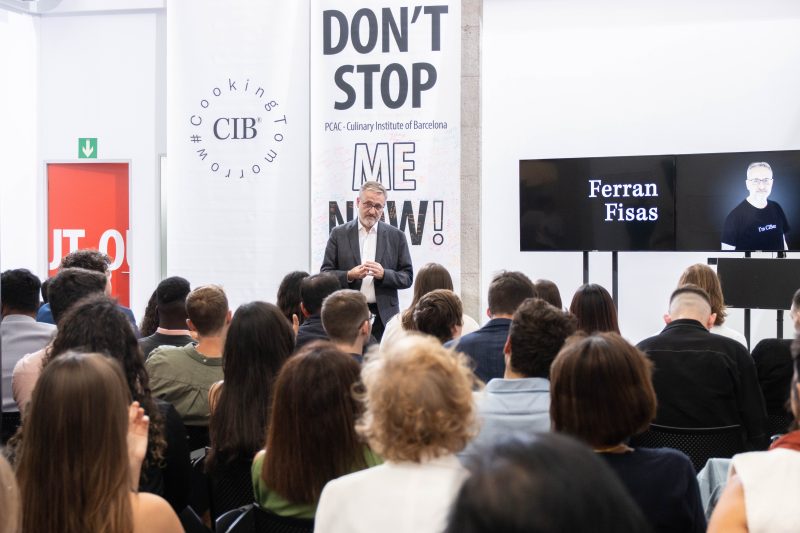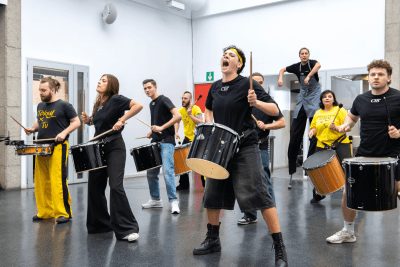The development of Artificial Intelligence (AI) has been a fascinating journey, from its beginnings in mythology and science fiction to becoming a key element in modern life. The New Era Leadership Bootcamp was designed to address this advancement and prepare leaders for the AI era, especially focusing on how this technology is reshaping our lives and businesses.
In this post, we will briefly summarize Ferran Fisas’ presentation, president of the CIB, for the Executive Chefs Club Summit of HIP2024 about the evolution of artificial intelligence and the impact it will have on kitchens. Get a discount code on your tickets at the end of the post!
Since when does AI exist?
The history of AI began in the 1950s with Alan Turing, who asked, “Can machines think?” In 1956, John McCarthy coined the term “artificial intelligence,” and since then, AI has evolved immensely. The early years focused on programs that could perform specific tasks, such as playing chess. The 1970s saw the development of expert systems, although limitations in computational power led to a period of stagnation known as the “first AI winter.”
The 1990s marked a revival, thanks to advances in machine learning algorithms and neural networks. Projects like IBM’s Deep Blue demonstrated the potential of AI. The last decade has witnessed explosive growth in AI, driven by the availability of large amounts of data and improvements in computing power. Deep learning has facilitated notable achievements in fields such as speech recognition and computer vision.
Today, AI is used in multiple areas, from personalized medicine to autonomous vehicles. In medicine, for example, it is used to enhance diagnoses and treatments, with systems capable of identifying patterns in medical images with accuracy comparable to or surpassing human radiologists. Furthermore, AI has begun to venture into the realm of creativity, assisting in the creation of music, art, and literature.
In the financial sector, AI is transforming areas such as fraud detection and algorithmic trading, with algorithms capable of analyzing massive volumes of transactions in real-time.

What challenges do companies face with AI?
The adoption of AI is generating significant changes in the job market, creating new jobs and demanding a shift in skills. There is a growing focus on retraining and the development of skills, not only technical but also soft skills like critical thinking.
However, this integration has also heightened concerns about the privacy and security of personal data. Stricter data privacy laws have been implemented, and significant ethical challenges have emerged, especially regarding algorithmic bias and autonomous decision-making. The ethics of AI have become a critical issue, demanding transparency and robust regulations.
Adapting and thriving in the AI era requires a focus on relevant skill development and ethical understanding of technology. This includes continuous education in data science and programming, as well as the development of complementary skills such as creativity and adaptability.
Organizations must invest in training programs and foster a culture of continuous learning. Additionally, incorporating ethical considerations into the use of AI is essential.
AI is a techonological revolution
Looking to the future, the development of General AI (AGI) is envisioned, which could surpass human cognitive ability in a wide range of tasks. AGI represents a qualitative leap and raises profound questions about ethics, security, and the impact on employment and the global economy.
Addressing these challenges will require continuous education, interdisciplinary collaboration, effective regulation, and a focus on ethics. Society must prepare to embrace the benefits of AGI while mitigating its risks.
AI is a paradigm shift comparable to other major technological revolutions such as the printing press and the Industrial Revolution. Each advance has transformed society, creating opportunities and challenges. The key to navigating these changes has always been adaptation through education, regulation, and the development of new forms of work. The New Era Leadership Bootcamp has been designed for this purpose, preparing leaders to face the challenges and seize opportunities in the era of AI.
Meet us at Hospitality Innovation Planet 2024
The CIB · Culinary Institute of Barcelona has been invited to speak at the Executive Chefs Club Summit of the Hospitality Innovation Planet (HIP), which will take place on February 19, 2024, in Madrid.
In it, the president of CIB Ferran Fisas will talk about the importance of education to face the changes that artificial intelligence brings. As we progress, it is crucial to consider not only the technical potential of AI but also its ethical implications and its impact on society.








